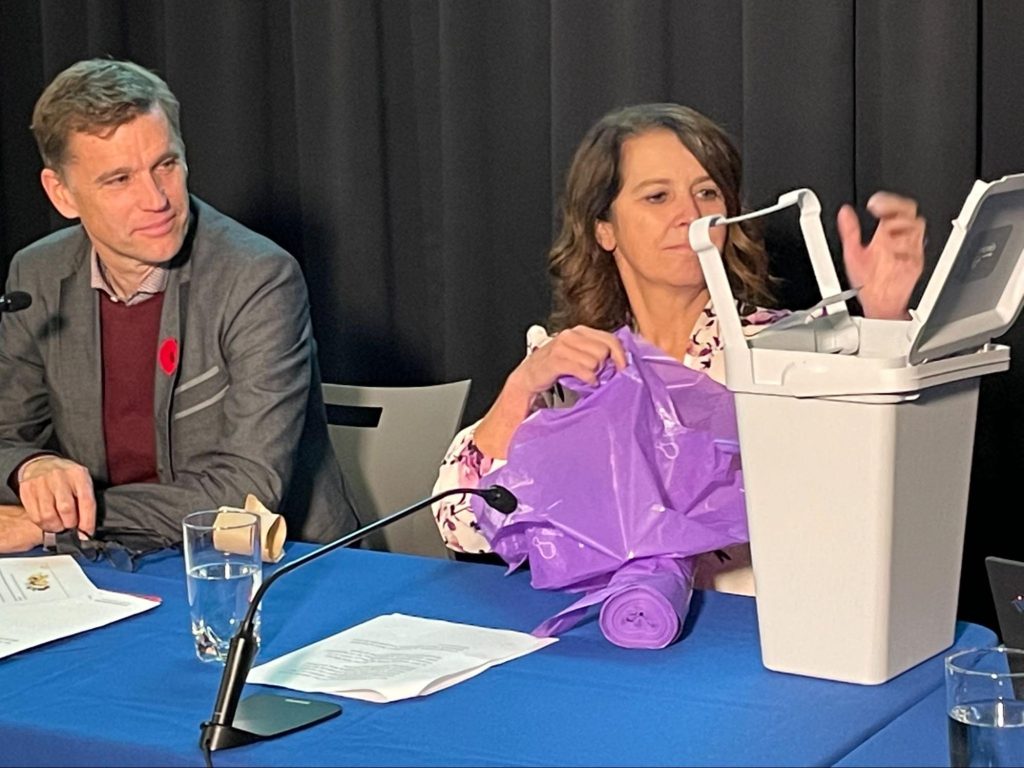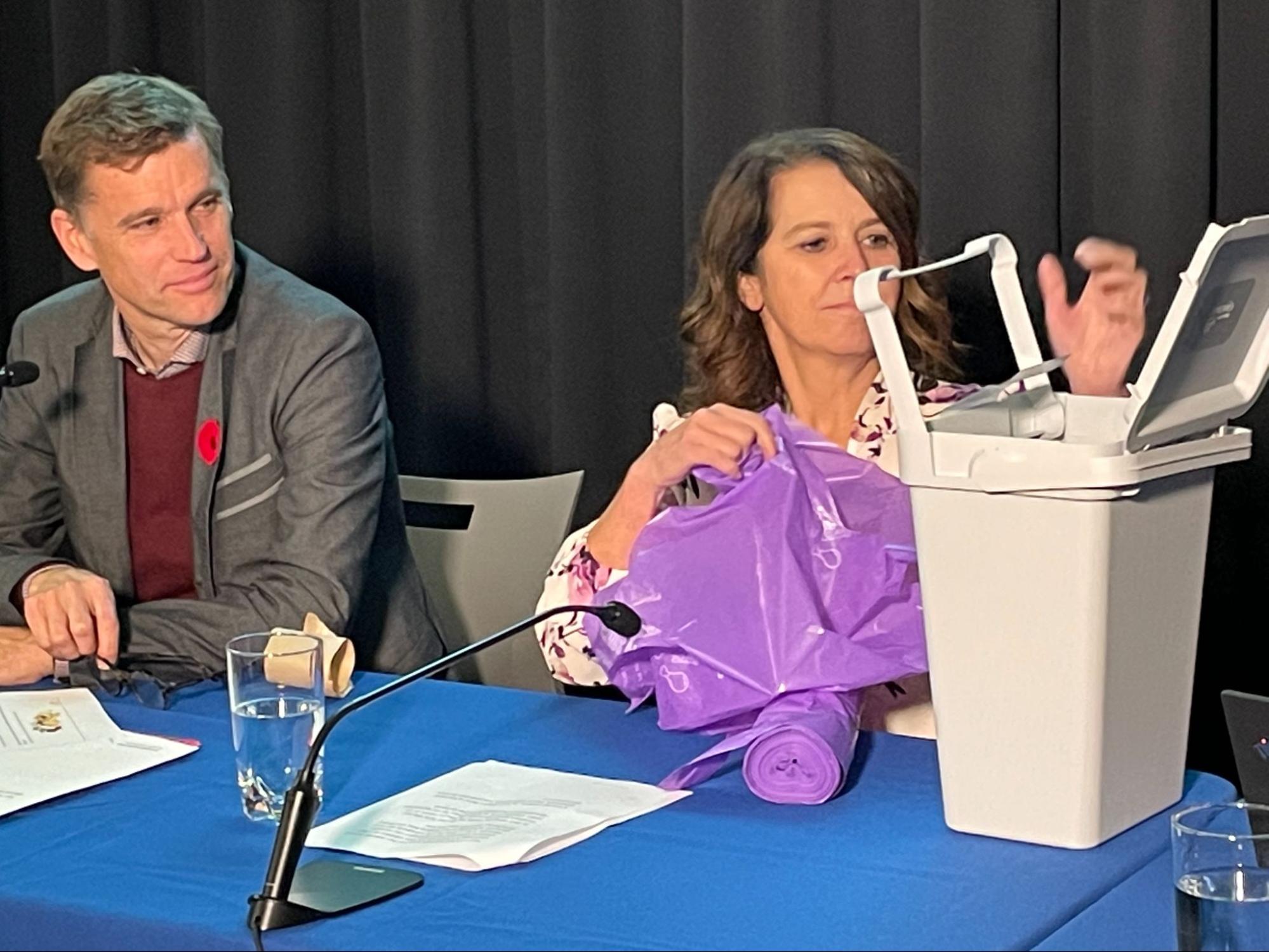City begins household food waste collection in La Haute Saint-Charles
Shirley Nadeau
shirley@qctonline.com
Quebec City’s garbage is getting more and more colourful! Along with dark green plastic bags for regular garbage, orange bags for fall foliage and blue bags for recyclables such as paper, plastic and metal, some residents now have purple bags for the collection of household food waste, i.e. basically anything that can be eaten or is part of something that can be eaten.
No paper, plastic or metal should be placed in these bags. If you or your dog can’t digest it, neither can the new Centre de biométhanisation de la matière organique (CBMO; organic matter biomethanization centre) located at 105 Boulevard Henri-Bourassa near the Baie de Beauport.
On Nov. 1, the Ville de Québec announced the beginning of the collection of food waste in the Haute Saint-Charles borough. For the occasion, Mayor Bruno Marchand; Marie-Josée Asselin, vice-president of the executive committee responsible for the environment and waste management; and Bianca Dussault, president of the borough, delivered the first two containers and rolls of bags to residents of households on Ave. de la Montagne.
The start of the collection of household food waste allows for the gradual entry into service of the CBMO. The purple bags of food waste, collected with regular garbage, will be sent to the organic matter recovery centre (CRMO) where they will be separated from other debris by optical sorting and pushed by air jets toward the treatment equipment. Emptied of their contents, the purple bags are sent off to be recycled separately.
“Today we are taking a big step towards a greener and more responsible city,” declared Marchand. “We are entering a new era for the biomethanization of household waste in Quebec City. Together, we will contribute to the energy transition by creating methane gas with our waste. We are adopting a method that is effective, easy and already the envy of other cities across the province and in Canada. With only a small, simple gesture, citizens will be able to contribute effectively to the fight against climate change. Let’s make this new practice everyone’s business.”
Small, white kitchen-sized bins and a six-month supply of purple bags will be offered free of charge to all residents for the collection of food waste. Distribution will take place gradually around the city over the next six months.
“With the start of food waste collection, we invite residents to develop this new simple, eco-friendly habit,” added Asselin. “By putting your leftovers and all your food waste in the bin, you contribute with us to reduce the city’s greenhouse gases by 18,000 tonnes each year. Thank you for making Quebec a greener city with us!”
Once full, the purple bag should be placed in the usual refuse container so it can be picked up by the regular garbage trucks. Residents of apartment or condo complexes can therefore participate like residents of single-family homes.
By using regular garbage collection to pick up purple bags, the city avoids the need for a third collection, which in turn prevents the noise, dust and greenhouse gas emissions from additional garbage trucks.
The recovery of organic matter will produce 73,000 tons of digestate, a natural fertilizer that will be used to fertilize agricultural fields, and 10.2 million cubic metres of renewable natural gas that will be injected into the Énergir network. In this regard, a $100-million agreement over 20 years was reached between the Ville de Québec and Énergir in 2019.
To find out more about the new collection of food waste and biomethanization, consult ville.quebec.qc.ca/sacmauve.


 Mayor Bruno Marchand observes as Marie-Josée Asselin, vice-president of the executive committee responsible for the environment and waste management, demonstrates how to insert a purple bag into the kitchen waste receptacle that residents of Quebec City will receive over the next six months. (Photo by Shirley Nadeau from QCT archives)
Mayor Bruno Marchand observes as Marie-Josée Asselin, vice-president of the executive committee responsible for the environment and waste management, demonstrates how to insert a purple bag into the kitchen waste receptacle that residents of Quebec City will receive over the next six months. (Photo by Shirley Nadeau from QCT archives)